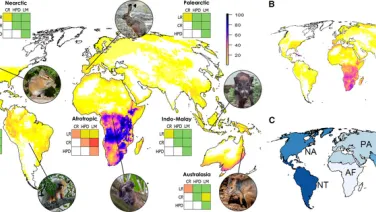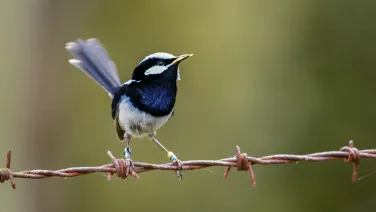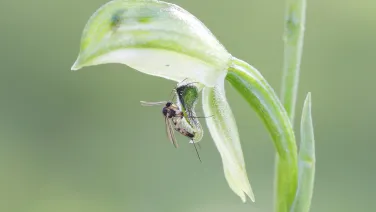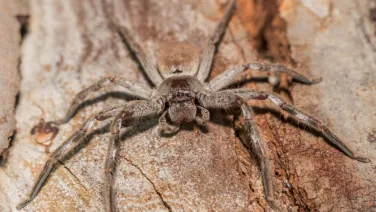News & events
News & events
Find out about our latest news and events.

Until recently we had very little idea when butterflies evolved, and hypotheses concerning their place of origin were largely educated guesses.

A new study shows that we can use existing conservation data to predict which currently unthreatened species could become threatened and take proactive action to prevent their decline before it is too late.

Superb fairy-wrens are more likely to take risks to help members of their close social circle, according to a new study.

Dr Tobias Hayashi studied a delicate little native orchid with a cool and clever adaptation to attract pollinators.

While most spiders are creatures of solitude, a study involving researchers from ANU has found some species have become more gregarious.
Each cell division comes with the risk of mutations that could eventually lead to cancer. How do organisms attain their mature sizes without succumbing to cancer? What happens when large-bodied lineages shrink in size? Can cancer risk constrain body size evolution?
Iteroparous animals often express dramatic variation in life-history traits over the course of a lifetime.
Metascience, or metaresearch, is a field of research that has grown out of the replication crisis. Amongst other things, metascience evaluates and monitors open science initiatives and other interventions to improve scientific practices and cultures.
Menno Schilthuizen is an evolutionary biologist with the Naturalis Biodiversity Center in Leiden, the Netherlands. He is also an active science writer and speaker.
Captive breeding and reintroduction are key to modern conservation, but high predation in recently released animals means reintroductions often fail.
Why is there a Replication Crisis? That is, why are there so many findings in the published scientific literature that can't be replicated, or are exaggerated far beyond reality?